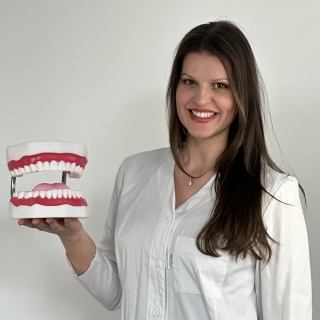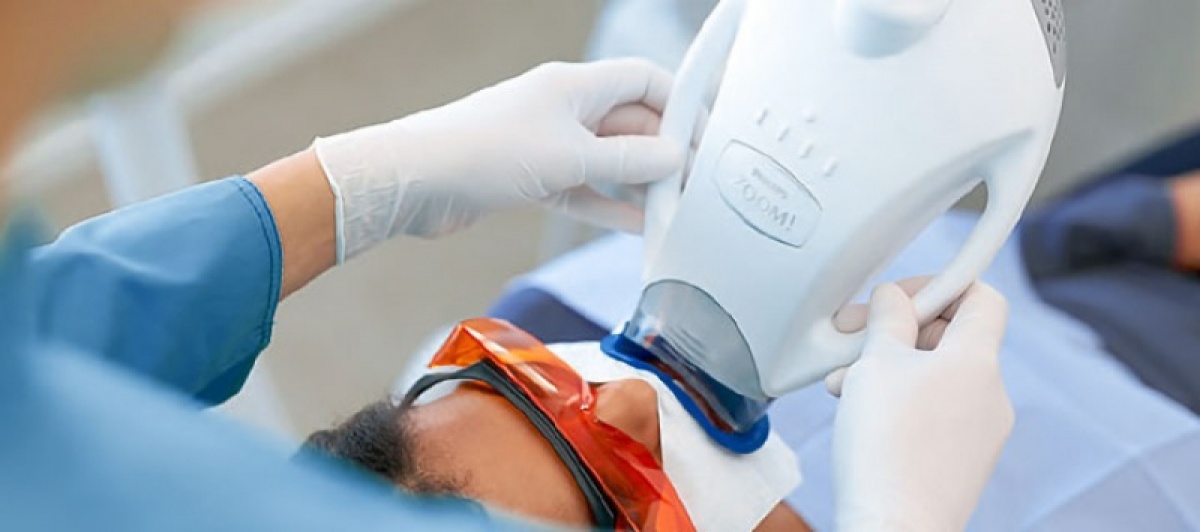Nowadays, there is a growing demand for sparkling white, perfectly shaped teeth that radiate youthfulness. If the appearance of the teeth is below expectations, teeth whitening can help achieve the desired whiter shade.
An irresistible smile and snow-white teeth, safely, after a single treatment!
- The entire procedure, including preparation, takes only 1.5 hours!
- Painless procedure
- No damage to the tooth enamel
- The results may last for a lifetime
- The solution is fast, spectacular and completely PAIN-FREE
The fastest, easiest in-office teeth whitening method is the Philips ZOOM WhiteSpeed lamp. Over 4 million patients worldwide have whitened their teeth with the WhiteSpeed lamp. This system is so reliable that it has been used with great success in many live aesthetic transformation television shows.
This whitening procedure that takes just one and a half hours, during which the gel applied to the tooth surface is illuminated by a lamp emitting UV light for four times 15 minutes.
This causes the hydrogen peroxide-containing material to activate, allowing the active oxygen to whiten discolouration in the deeper layers of the tooth.
The procedure turns your teeth naturally and dazzlingly white, while you have nothing to do but sit back and wait for the results.
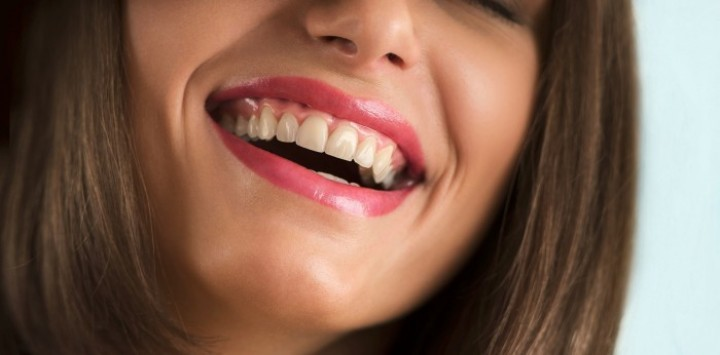
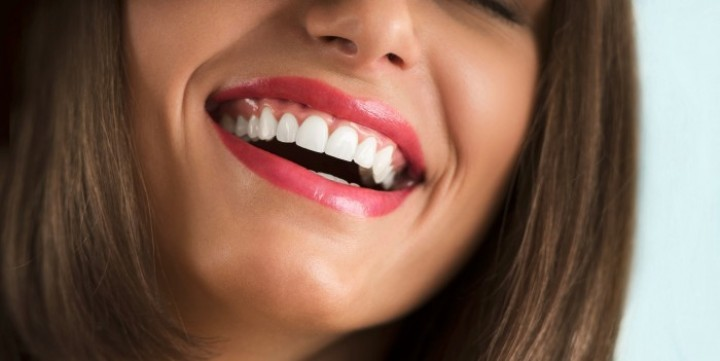
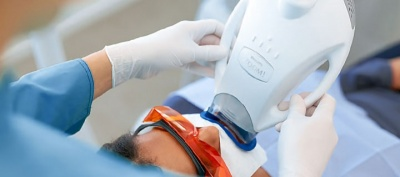
Our Dentists
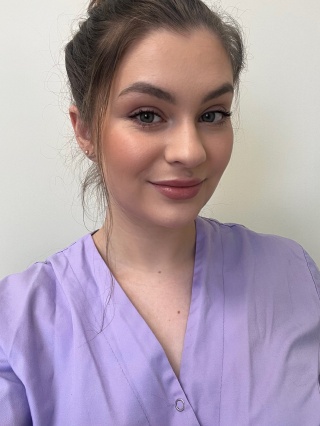
Frequently asked questions
CAN I EAT AND DRINK AFTER WHITENING? IF YES, WHAT CAN I EAT AND DRINK?
No food containing dyes should be consumed on the day of in-office lamp whitening, and such food should be avoided for the next two days as well. In particular, coffee, tea, red wine, soft drinks, foods containing paprika, blueberries, cherries, etc. can discolour teeth. The use of coloured toothpaste and mouthwash is not recommended either during this time. In short, you should eat or use things that are as white and as transparent as possible. For home whitening, 2-3 weeks of special attention (abstinence) is required.
I HAVE CROWNS ON MY FRONT TEETH. CAN THEY BE WHITENED?
Unfortunately, dental restorations (crowns, bridges, veneers, inlays/onlays, fillings, etc.) cannot be whitened, so patients who have any of these in their mouths require a prior consultation and planning for teeth whitening. Usually, after whitening, the restorations need to be replaced, especially those in the front of the mouth.
I’M GETTING MARRIED SOON, HOW FAR IN ADVANCE SHOULD I HAVE MY TEETH WHITENED?
You should visit the dentist a month, but at least one week before the event to have any necessary pre-treatment or treatment. Dental hygiene treatment is necessary for healthy teeth as well, as it is essential to remove tartar.
WHAT ARE THE ADVANTAGES OF HOME AND IN-OFFICE WHITENING? IS THERE A DIFFERENCE IN TERMS OF RESULTS?
The advantage of in-office teeth whitening is that the result can be achieved within a single session, in an hour and a half including preparation, while it takes two weeks to achieve the same result when using a teeth whitening splint at home. For 48 hours after the in-office whitening, and for at least two weeks while using a teeth whitening splint at home, it is not advisable to consume coloured foods and drinks or use coloured toothpaste. The home method should be used by those who are able to maintain an “ascetic” lifestyle for a longer period of time, but who wish to have the whitening done according to their own lifestyle.
HOW LONG WILL MY TEETH STAY WHITE AFTER WHITENING?
With good oral hygiene, the results can last a lifetime, but the final result is of course influenced by eating habits and lifestyle (coffee, tea, red wine, smoking, alcohol and other food and drink containing colouring agents). In this case, a complementary colour maintenance treatment, which can be used 1-2 times a year, is sufficient to maintain the previously achieved results.
DOES TOOTH WHITENING DAMAGE TOOTH ENAMEL?
No! Teeth whitening supervised by a Dental Hygienist does not damage the tooth enamel and does not have any known side effects. We have no accurate information on drugstore or non-Dentist/Dental Hygienist supervised whitening, but there is a serious risk that whitening materials or their misuse may be a source of irreversible gum and periodontal disease.
HOW DOES IN-OFFICE TEETH WHITENING WORK WITH PHILIPS ZOOM?
Our teeth whitening process has been perfected for many years by our experts to give you the whitest teeth possible in the safest possible way. Your gums are specially coated before the dentist applies our unique hydrogen peroxide whitening paste. Hydrogen peroxide breaks down the molecular bonds that build up stains on the surface and inside of teeth. The bright light of the Philips Zoom WhiteSpeed Whitening LED Accelerator directed on the whitening paste further accelerates the process and can improve whitening results by up to 40%
WHY SHOULD I CHOOSE PHILIPS ZOOM?
Philips Zoom is not only proven to whiten teeth by up to eight shades, it is also completely safe. While other teeth whitening products can damage your teeth and gums, Philips Zoom and Relief ACP not only brighten teeth, but also protect tooth enamel.
IS THE PROCEDURE SAFE?
YES! Clinical trials and studies have shown that hydrogen peroxide teeth whitening is the safest and most effective aesthetic dental procedure. Of course, this is only true if whitening is performed under the supervision of a dental hygienist !
WHO CAN HAVE TEETH WHITENING?
Almost anyone, but there are some cases where treatment is not recommended; therefore, a thorough dental consultation should be performed before whitening.
WHAT MAY CAUSE TOOTH DISCOLOURATION?
Tooth discolouration is partly caused by genetic and partly by lifestyle reasons. Unfortunately, as we age, the colour of our teeth can change; besides, regular consumption of foods and drinks that contain artificial colouring can also have a major impact on the colour of our teeth. (E.g. coffee, various teas, red wine, nicotine, tar)





